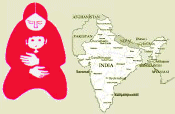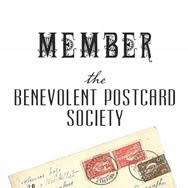The Conservative government seems to think that the best way to solve the problem of gender inequality in Canada and in programs overseas which Canada funds is simply to eliminate terms such as “gender equality” and “pay equity”. The “solution” is to obfuscate replace specific terms with meaningless terms and pretend the issues just don’t exist.
The most obtuse example is the insistence in removing the term “equality” from the main funding program at the Status of Women Canada, arguing that since women are guaranteed equality in the Charter of Rights, there was no reason to include it in the funding program’s mandate… Sort of like insisting that the term “rape” be removed from the mandate of a rape crisis centre because there are laws against rape.
OTTAWA — When it comes to talking about women’s issues, the Conservative government has torn up pages of the old policy dictionary and come up with a carefully crafted new language.
“Pay equity” has become “equitable legislation.” “Gender equality” is now “equality between women and men.” The national child-care program under the Liberals morphed into Universal Child Care Benefits. Even the word equality itself has been the source of internal wrangling.
The government says the new phrases better describe what it is trying to achieve. Critics say the revised terms put a positive-sounding spin on what actually achieves little.
The director of the Simone de Beauvoir Institute at Concordia University in Montreal says the attention to vocabulary suggests the Conservatives are trying to put their own stamp on women’s issues.
“I think they want to introduce a new language around claims around equality and women’s issues,” said Chantal Maille. “They want to use a language that is more neutral and less engaging, and less activist.
“It’s a strategy to show some kind of distance from activist agendas on the part of the women’s movement.”
Intense wordsmithing around women was perhaps best demonstrated in late 2006 when the Privy Council Office – essentially the prime minister’s policymaking department – decided it no longer wanted bureaucrats to use the term “gender equality” when dealing with the media or the public.
Instead, it was to be “equality between women and men.”
Documents obtained by The Canadian Press through the Access to Information Act show the edict sowed confusion at the Canadian International Development Agency, which was planning on making gender equality the theme of International Development Week in February 2007.
Gender equality was a pillar of the humanitarian work that CIDA [Canadian International Development Agency] managed, and the phrase used through countless internal and external documents.
Gender equality also covered girls and boys, which the new phrase did not.
“I suppose one has to become an adult, leaving childhood behind, before one qualifies for ‘gender equality’,” grumbled one manager.
CIDA staff argued with the Privy Council Office and the Prime Minister’s Office right up until the printer’s deadline for public materials, and bristled at attempts to remove references to women’s human rights.
“Regarding the removal of ‘human rights’ … by doing this, we are altering a CIDA policy – the CIDA Policy on Gender Equality,” said one CIDA bureaucrat in an email.
“Until a new policy is in place, this is the Agency’s guiding policy on equality between women and men.”
In perhaps an indication of how sensitive the issue was, CIDA did not respond to the Access to Information request for 18 months, and only after a complaint to the information commissioner. Bureaucrats anticipated the scrutiny early on.
“It was further raised … that there may be some fallout from media and questions raised on the lack of consistency in the language used, and the fact that Gender Equality is still being used internally and is the title of the 1999 policy,” says one staff memo.
“It was advised that a response be prepared in the eventuality of such questions.”
That response was not forthcoming when the agency was contacted this week.
This year, the government unveiled new legislation that it said would speed up the process for pay-equity disputes. But the familiar words “pay equity” have been discarded in favour of “equitable compensation.”
“The term always refers to the same principle – the principle of equal pay for work of equal value,” explains Pierre-Alain Bujold of the Treasury Board Secretariat.
“We use the word compensation to reflect that it is not only about pay equity, but also equity in all aspects of compensation – working conditions, benefits, etc.”
Critics of the new legislation say it puts women at a greater disadvantage, making equal pay an issue to be hashed out at the volatile collective bargaining table.
The change also puts the adjudicative power in the hands of the Public Service Labour Relations Board instead of the Canadian Human Rights Commission, and penalizes unions that provide legal support to women when they go up against their federal employers.
“Words are very powerful,” says NDP MP Irene Mathyssen. “The use of the term ‘equitable compensation’ is a cloak, because it masks the really rotten things that are in that Act.”
“They’re using words that sound like the words we use, but they don’t really mean anything because they’re not putting any facts behind them,” said MP Maria Minna, chair of the Liberal women’s caucus.
There is some suggestion that the government believed it went too far in changing the lexicon at Status of Women Canada.
There was an uproar in 2006 when the agency altered the mandate of its main funding program to remove the word equality. The minister at the time, Bev Oda, explained that the word was unnecessary since equality was already guaranteed to women under the Charter of Rights.
Bureaucrats at Status of Women Canada argued against the change, telling the minister in internal memos that considerable work remained to advance women’s equality.
A year later, after intense criticism by the opposition parties and women’s groups, the word equality found its way back into the mandate of the Women’s Program.
Copyright © 2009 The Canadian Press. All rights reserved.








